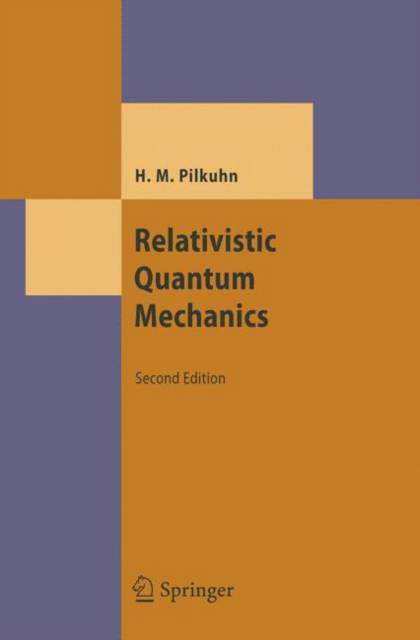
- Afhalen na 1 uur in een winkel met voorraad
- In januari gratis thuislevering in België
- Ruim aanbod met 7 miljoen producten
- Afhalen na 1 uur in een winkel met voorraad
- In januari gratis thuislevering in België
- Ruim aanbod met 7 miljoen producten
Omschrijving
In this book, quantum mechanics is developed on a relativistic basis, using the superposition principle, Lorentz invariance and gauge invariance. Nonrelativistic quantum mechanics as well as classical relativistic mechanics appear as special cases. They are the sources of familiar names such as "orbital angular momentum", "spin-orbit coupling" and "magnetic moment" for operators of the relativistic quantum formalism. The theory of binaries, in terms of differential equations, is treated for the first time in this book. This second edition of the successful textbook adds various new sections on relativistic quantum chemistry and on the relativistic treatment of the proton in hydrogen. Others chapters have been expanded, or carefully revised.
Specificaties
Betrokkenen
- Auteur(s):
- Uitgeverij:
Inhoud
- Aantal bladzijden:
- 278
- Taal:
- Engels
- Reeks:
Eigenschappen
- Productcode (EAN):
- 9783540255024
- Verschijningsdatum:
- 3/08/2005
- Uitvoering:
- Hardcover
- Formaat:
- Genaaid
- Afmetingen:
- 163 mm x 241 mm
- Gewicht:
- 544 g

Alleen bij Standaard Boekhandel
Beoordelingen
We publiceren alleen reviews die voldoen aan de voorwaarden voor reviews. Bekijk onze voorwaarden voor reviews.









